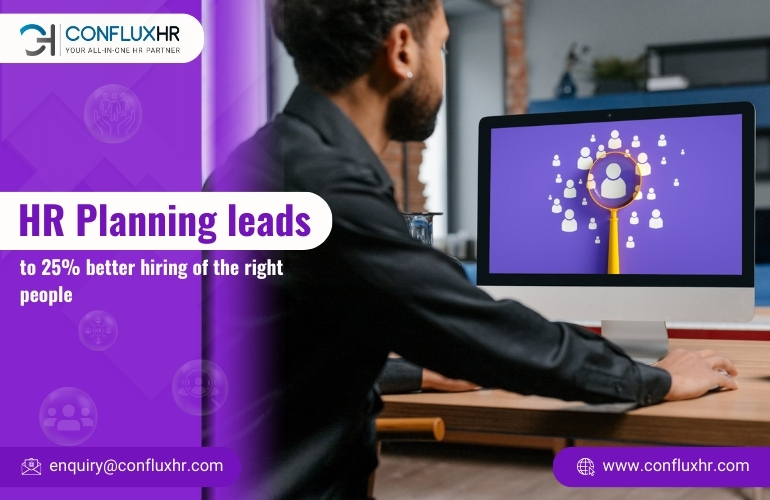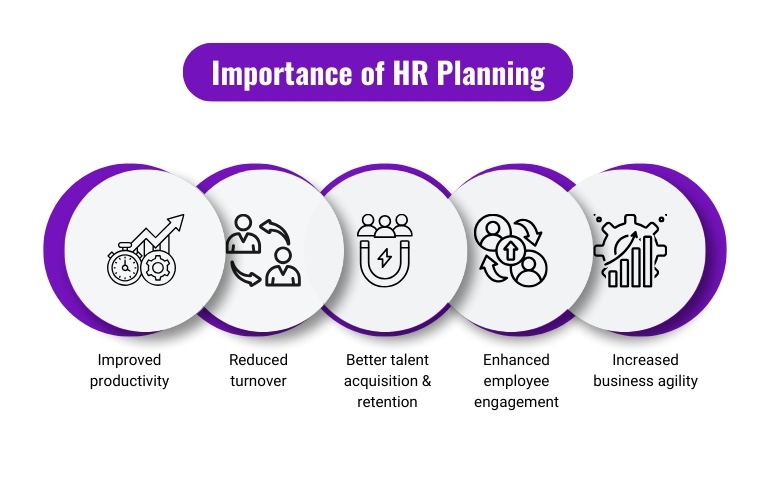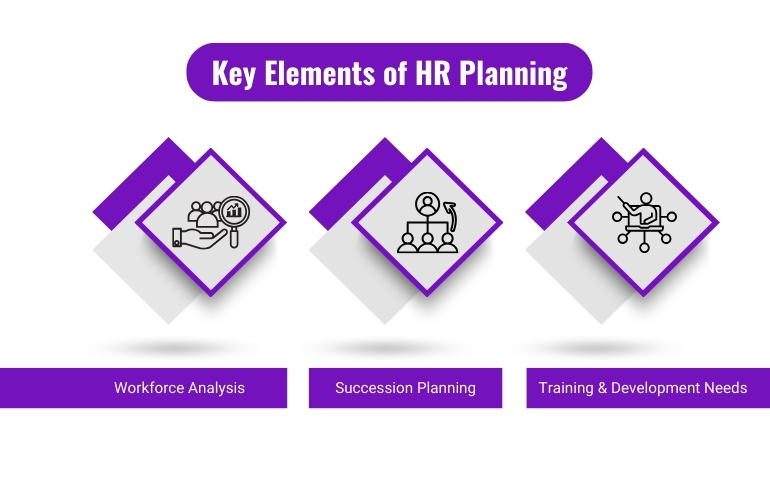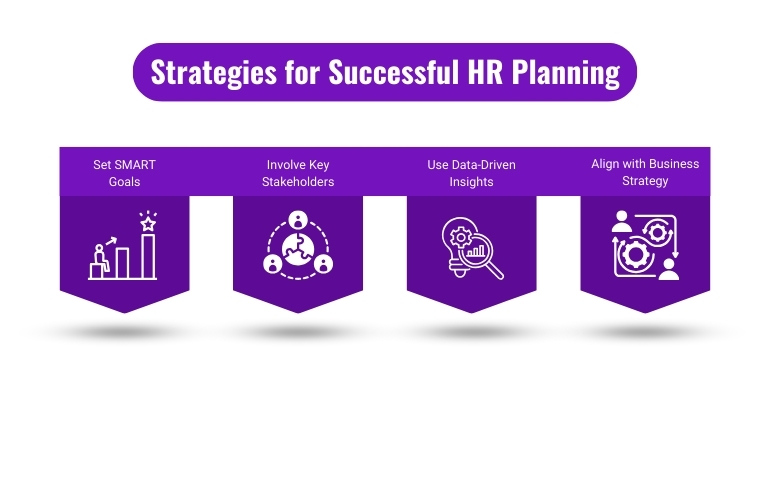So, you’ve heard about HR planning, right? Maybe you’re wondering what all the fuss is about. Well, grab a cup of coffee (or tea, if that’s your thing), and let’s dive in!
Why Should You Care About HR Planning?
Picture this: You’re running a business, and suddenly you realize you don’t have the right people for an important project. Nightmare, right? That’s where HR planning comes in. It’s all about making sure you’ve got the right folks, with the right skills, exactly when you need them. Cool, huh?
Here’s what good HR planning can do for you:
- Boost productivity (who doesn’t want that?)
- Keep your star employees around longer
- Help you find and keep amazing talent
- Get your team more engaged and excited about work
- Make your business more flexible and ready for anything
Sounds pretty great, doesn’t it? Let’s break it down further.
The Building Blocks of HR Planning
- Workforce Analysis Hey, quick question – do you know exactly what skills your team has right now? No? Don’t worry, you’re not alone! This is all about figuring out what you’ve got and what you need. Here’s a fun exercise: Grab a piece of paper and jot down 3 skills your team is missing. We’ll come back to this later!
- Succession Planning Ever had that panic moment when a key team member leaves? Succession planning is your safety net. It’s about knowing who could step up if someone suddenly won and left.
- Training and Development Remember those skills you wrote down? This is where you figure out how to fill those gaps. Maybe it’s time for a coding bootcamp or a leadership workshop?
Making HR Planning Work for You
Okay, so now you know the basics. But how do you make it actually work? Here are some tips:
1.Set Clear Goals Don’t just say “We need to hire more people.” Get specific! How about “We’ll reduce our hiring time for managers by 20% in the next 6 months.” Now that’s a goal!
2.Get Everyone Involved HR planning isn’t just for HR folks. Loop in your team leads, executives, maybe even some star employees. The more perspectives, the better!
3.Use Data (But Don’t Get Overwhelmed) Numbers are your friends here. Look at things like how long people stay in their jobs, how quickly you’re hiring, that sort of thing. But don’t get lost in spreadsheets – use the data to tell a story.
4.Keep Your Business Goals in Mind Your HR plan should help your business grow. If it doesn’t, it’s time to rethink!
When Things Get Tricky
Let’s be real – HR planning isn’t always smooth sailing. Here are some common hiccups and how to handle them:
1.Skills Changing Faster Than You Can Blink
Solution: Keep learning! And hey, have you thought about getting an HRMS (Human Resource Management System)? It can help you keep track of skills and training needs.
2.People Resisting Change
Solution: Communication is key. Explain why these changes matter. An HRMS can help you keep everyone in the loop.
3.Budget Blues
Solution: Focus on what matters most. And guess what? An HRMS can actually save you money by automating a lot of HR tasks.
4.Crystal Ball Not Working?
Solution: You can’t predict the future, but you can prepare for different scenarios. Many HRMS platforms have cool features to help with this.
5.HR and Business Speaking Different Languages
Solution: Regular check-ins between HR and other departments. An HRMS can give everyone access to the same info, so you’re all on the same page.
The Payoff
Get this right, and you could see:
- 15-20% more productivity (hello, efficiency!)
- Up to 30% less employee turnover (bye-bye, constant recruiting)
- 25% better at hiring the right people
- 40% more engaged employees (imagine a workplace where people actually want to be!)
Wrapping It Up
Remember those skills gaps you wrote down earlier? With smart HR planning, you can tackle them head-on. It’s all about being proactive, not reactive.
HR planning isn’t a one-and-done deal. It’s an ongoing process that grows with your business. But trust me, it’s worth it. You’ll end up with a team that’s more engaged, more productive, and ready for whatever comes next.
So, what’s your next move? Maybe it’s time to take a fresh look at your HR practices? Or perhaps you’re ready to explore how an HRMS could make your life easier?
Whatever it is, you’ve got this. Happy planning!





